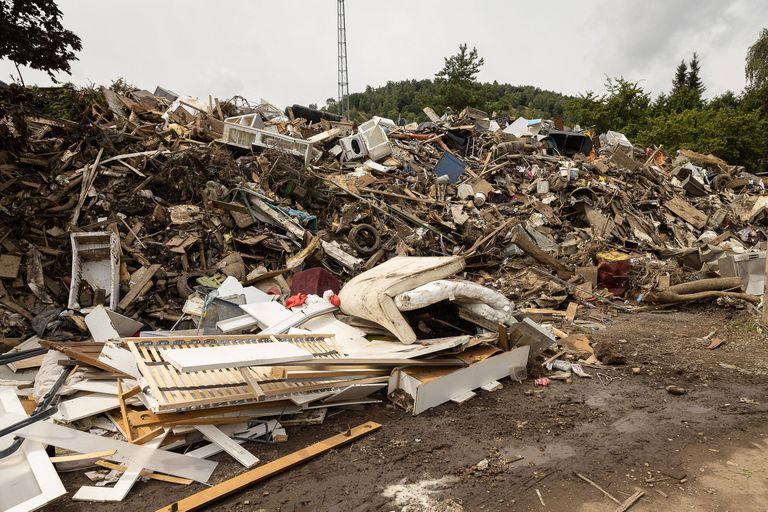Belgian citizens and businesses have donated €30 million to flood victims via an emergency account with the Red Cross, but the organisation has been criticised for its lack of presence on the ground in the flood stricken areas, reports De Standaard.
At the beginning of last week, €4 million was paid into the emergency account that the Belgian Red Cross-Flanders and La Croix Rouge jointly opened after the floods that killed 38 people and affected more than 200 municipalities in the south of the country, the newspaper reported.
Donations were made at the request of Belgium’s National Crisis Centre.
Just one week later, that amount swelled to no less than €30 million, with donations coming not only from citizens all over the country, but also from companies, some of which have donated large sums.
“We have never seen such solidarity before, in any disaster abroad. It is clear that Belgians feel very involved in what has happened in Wallonia,” Philippe Vandekerckhove, managing director of the Belgian Red Cross-Flanders, told De Standaard.
“It is the biggest humanitarian disaster we have ever seen in this country. It is unprecedented that so many people are affected simultaneously - there have been fatalities, but there are also many people who have lost their homes and many municipalities have been affected. Never before has the need in our own country been so widespread, on such a large scale.”
Vandekerckhove is adamant that all the money will be spent on helping the victims.
So far, €1.5 million has been spent on beds, tents, meals, transport, hygiene kits and flashlights, he says, adding that La Croix Rouge and the government are now working on a medium-term plan to see which families will need temporary accommodation.
“We will allocate larger amounts of money for this. We will also communicate transparently about that,” said Vandekerckhove.
Criticism of the Red Cross has been mounting recently, as Belgian media outlets report on a lack of coordination of the aid and the seeming absence of the Red Cross on the ground in disaster areas.
Vandekerckhove said that this is “not usual” when local branches of the Red Cross, like La Croix Rouge, don’t ask for that sort of help.
“It was also frustrating for our staff and volunteers to hear this criticism, because they were eager to help,” he told De Standaard.
Other criticism implies that while La Croix Rouge was quick with emergency aid, it did not scale up quickly enough.
“The structures in our country are not adapted to a disaster on such a large scale. The National Crisis Centre and the fire brigade have also established this,” Vandekerckhove said.
In Belgium, disaster preparedness is the responsibility of three ministers (the Minister of the Interior, the Minister of Public Health and the Minister of Defence), which Vandekerckhove says makes the matter “unnecessarily complex.”
Coordinating assistance is important, he emphasised.
“You don't want to get stuck in a traffic jam with your transport. During the 2004 tsunami, more planes with relief goods flew to South-East Asia than could land there,” Vandekerckhove pointed out.
“You also want to bring the right aid where it is needed. There are now many organisations that offer hot meals. You shouldn't be doing that too.”
Since the end of last week, the coordination is starting to run smoothly, he said.
“It may be late, but a disaster is a logistical challenge for which you are never sufficiently prepared. So it may be that our volunteers have not made themselves sufficiently useful in some places. But they have also done a good job,” said Vandekerckhove.
“I see the same thing with citizens who go and offer help on their own initiative. There are good and bad examples on both sides. The fact is that here we see the great power of what citizens can contribute. That is one of the lessons we can learn from this.”
The Brussels Times

